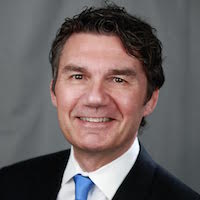Euro 2004: Soccer and Economic Strategy
Can the EU learn a lesson from soccer strategies?
June 30, 2004
The sun could hardly shine brighter — and the new stadiums could hardly be more futuristic as Portugal is hosting the soccer extravaganza dubbed Euro 2004.
Europe's top 16 national soccer teams gathered there in their quadrennial ritual of finding out who will rule the European world of soccer for the next four years.
For over two weeks now, Europeans have remained glued to their television sets to watch the outcome develop with slow agony.
As we approach the final phase of the tournament, one cannot help but remind oneself of the words of U.S. Secretary of Defense Donald Rumsfeld, who divided his allies to the East into the "old" vs. the "new" Europe.
Much as in the real world, erstwhile soccer giants Germany, Italy, France and Portugal have stagnated for years. On any given day, they may be given a sound drubbing by such underdogs and representatives of the "new" Europe as Romania or Hungary.
The latter of the two were not even represented at the tournament, but they beat Germany by a combined score of 7:1 in the weeks leading up to current events.
The distinction between "old" and "new" Europe is nowhere more apparent than in the way in which the erstwhile champions define the game.
In the late 1930s, an Austrian (definitely "old" Europe) developed a defensive system as coach of the Swiss national team (also "old", albeit neutral, Europe).
He named his system "verrou" — after the French ("old" Europe) word for door bolt. The system was further perfected by an Argentine (almost "old" Europe, at least in their own minds) in the 1960s, when he coached one of Europe's most successful teams, Inter Milan of Italy.
It was in Milan where the defensive style — that became the recipe for most of Europe's soccer glory up to this day — received its currently well-recognized name of catenaccio.
This name essentially has the same meaning as the French word verrou — or door bolt.
At that time, Europe was advancing in many other areas.
The German economy had entered its "wunder" years. The centralized, semi-planned French economy seemed to suggest that there was indeed a "third way", encouraging the country to assert itself by dropping out of NATO.
The six-nation European Union appeared indeed to counter-balance American economic might with infinite potential.
By the end of the 1960s, however, Europeans were beginning to suffer from their first of several bouts with eurosclerosis.
Unfortunately, they fought this condition with the economic and political equivalent of the catenaccio (Remember: door bolt).
The growing membership of the European Union built ever-higher fences around the Union, strengthening their economic defense and in the process stifling all creativity and competition.
No wonder that, some 35 years later, Germany is confronted with chronic double-digit unemployment. The French treasury is running short on funds and quite generally the rentier-economies of the "old" Europe cannot compete.
Still drawing on their accumulated economic wealth, European dinosaurs have been allowed to maintain their calcified policy prescriptions, albeit without creating immediate political and economic chaos.
Thus, the catenaccio still is a 'success', because the old Europe has avoided defeat so far. Smokescreens of new unifying projects have helped the political establishment to steer clear of much needed reforms.
On the contrary, in early June of 2004, France and Germany decided to dust off an old favorite of theirs: Industrial policy, the epitome of economic catenaccio.
They have agreed to find and foster "European champions" and for the moment we are not talking about soccer. Rather, they think of large industrial complexes that will finally obliterate their "pesky" organically-grown, American rivals.
But all of this defensive play will only serve the short-term political expediency of those who govern.
And even that is highly doubtful — considering the disastrous results for all parties in national government during the recent election for the European Parliament.
Moreover, in the long run this strategy guarantees the economic defeat of the "old" Europe. Much as in soccer — and perversely so — most European economic policymakers are deeply satisfied with a scoreless tie.
In soccer, the International Federation of Football Associations (FIFA) is heavily dominated by its European arm. Contrary to those who run the National Football League in the United States, the stubborn elite of the "old" Europe has failed to keep up with the game.
In their aging minds, the rules of soccer have an intrinsic value. Their purpose is not to create an attractive, exciting, competitive and ultimately rewarding game. They prefer to provide a durable framework within which to operate safely and predictably.
In the ‘policy’ arena, "old" Europe seems wedded to state-interventionist economic policy — regardless of their governments' party affiliation.
Conservatives, Christian Democrats, Social Democrats, Socialists, Gaullists or whatever they might call themselves all agree on one thing: Change is bad.
Thus, they designed directives for a single European market that standardized all matters of distinction, down to the nutritional composition of chocolate Easter bunnies.
The verbose, but yet-to-be approved European Constitution (the accompanying document proudly measures 350 pages) takes such economic regimentation to a new — and heretofore unmatched — political level.
On July 4 — U.S. Independence Day — the winner of the Euro 2004 will be determined in the final game of the championship.
As we enter the decisive phase, most proponents of the catenaccio have fallen by the wayside, making room for the young upstarts. The time may finally have come, when the “new” Europe will outplay the “old”, putting to rest the ideas of yesteryear.
Read previous
What NATO Must Do
June 29, 2004
